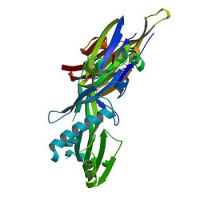In a study published online in the European Heart Journal, researchers from the J.W. Goethe University in Frankfurt, Germany, conducted a systematic review and meta-analysis of all studies published in peer-reviewed journals between 1993-2014 that looked at the effects of digoxin on death from any cause in AF and CHF patients.
19 relevant studies were identified that included 326,426 patients (235,047 AF and 91,379 CHF patients). The review showed a 21% increased risk of death from any cause in patients treated with digoxin as compared to patients who were not receiving this treatment. When they looked at the group of AF patients and the group of CHF patients separately, digoxin was associated with a 29% and 14% increased risk of death from any cause respectively, when compared to patients not receiving the drug.
Digoxin is commonly used in patients with atrial fibrillation and heart failure. However, the drug is difficult to use successfully because there is a narrow dose range at which it is effective and beyond which it can be dangerous. Regular blood tests are required to test the levels of digoxin in the blood and high levels have been correlated with an increased death rate in patients.
Guidelines from U.S. and the European Society of Cardiology recommend its use in patients with heart failure and problems with control of the heart’s rhythm. The authors write: “These recommendations reflect the highly unsatisfactory data basis on which to judge the supposed benefits of digoxin.” The authors suggest that randomised controlled trials of digoxin should be conducted and until that happens, the drug should be used “with great caution (including monitoring plasma levels), particularly when administered for rate control in AF.”
Stefan Hohnloser, Professor of Cardiology at the university, who led the study, also cautions that the use of digoxin is associated with harm and only carefully performed meta-analyses provide the best clinical guidance. There is a need for randomised controlled trials to examine the use of digoxin for both conditions.
“Digoxin has been used for decades and even now it is used in approximately one in three AF patients, yet we have been able to do this meta-analysis only now. My personal feeling is that the time of digoxin – particularly as a heart rate-controlling drug in AF – is over. But this needs to be tested in appropriately designed studies.”
A recent trial of dronedarone in AF patients had to be stopped prematurely because of an excess number of deaths among patients receiving dronedarone. Analysis showed 11 out of 13 deaths among patients in the dronedarone arm of the trial occurred in those who had received digoxin at the same time. It is likely that the drug-drug interaction between dronedarone and digoxin at the level of the P-glycoprotein transport system resulted in significantly elevated serum digoxin levels in patients who died.
Source: ESC
Image Credit: Pixabay



























